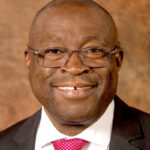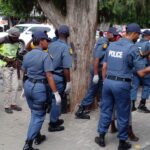Eskom says it has returned at least 37 generation units to service following what Chief Operating Officer (COO), Jan Oberholzer, called a “disastrous week” for the power utility.
Last week, Eskom announced that Stage 2 load shedding would be implemented throughout the week. However, the breakdown of some 42 generation units quickly escalated load shedding to Stage 4 by Saturday.
Oberholzer, together with Eskom management, briefed media on Monday morning on the state of the power system and the challenges it faces.
Describing a week in which Eskom suffered generation unit breakdowns and slow returns to service, Oberholzer acknowledged that the “performance of generation…is extremely disappointing”.
“If you add all of the [generation unit breakdowns] up, we had 42 units tripping during the week… just under 24 000 MW – some of them more than once.
“We managed to return 37 units [to service], totalling about 22 000MW – a really poor performance of our generation coal fleet during last week,” he said.
As of Monday morning, Eskom has some 5 319MW of power out on planned maintenance, with more than 15 000MW offline due to breakdowns.
Some 7 500MW capacity, from 13 generation units, is expected to return to service over the next three days.
“Stage 4 load shedding on Saturday and Sunday allowed us to replenish the damn levels at the pump storage power stations and there has been progress in filing the diesel tanks at the open cycle gas turbine cycles… but the diesel levels are still low.
“Stage 3 load shedding will remain implemented until 5am on Tuesday morning. For the remainder of the week until midnight on Friday, Stage 2 load shedding will be required while we attempt to return those 13 units to service. This outlook may change at short notice, should we experience unforeseen breakdowns,” Oberholzer said.
Koeberg
Oberholzer said some 920MW of capacity at Koeberg Nuclear Power Station’s Unit 2 remains offline, since the beginning of this month.
The big unit – one of Eskom’s most reliable – tripped during routine testing ahead of its full return to service following maintenance outage since January.
“Industry experience indicates that this type of issue can be experienced for a period following the replacement of the control rod drive mechanism, which we did during the last outage.
“I can assure the public that the Koeberg team, together with the Original Equipment Manufacturer (OEM), continue to perform tests on the system and are analysing the results in detail to ensure the reason is fully understood.
“Once all the tests are completed and all the measures to reduce the risk of production impact have been assessed and if possible, implemented, the unit will be returned to service,” Oberholzer said.












